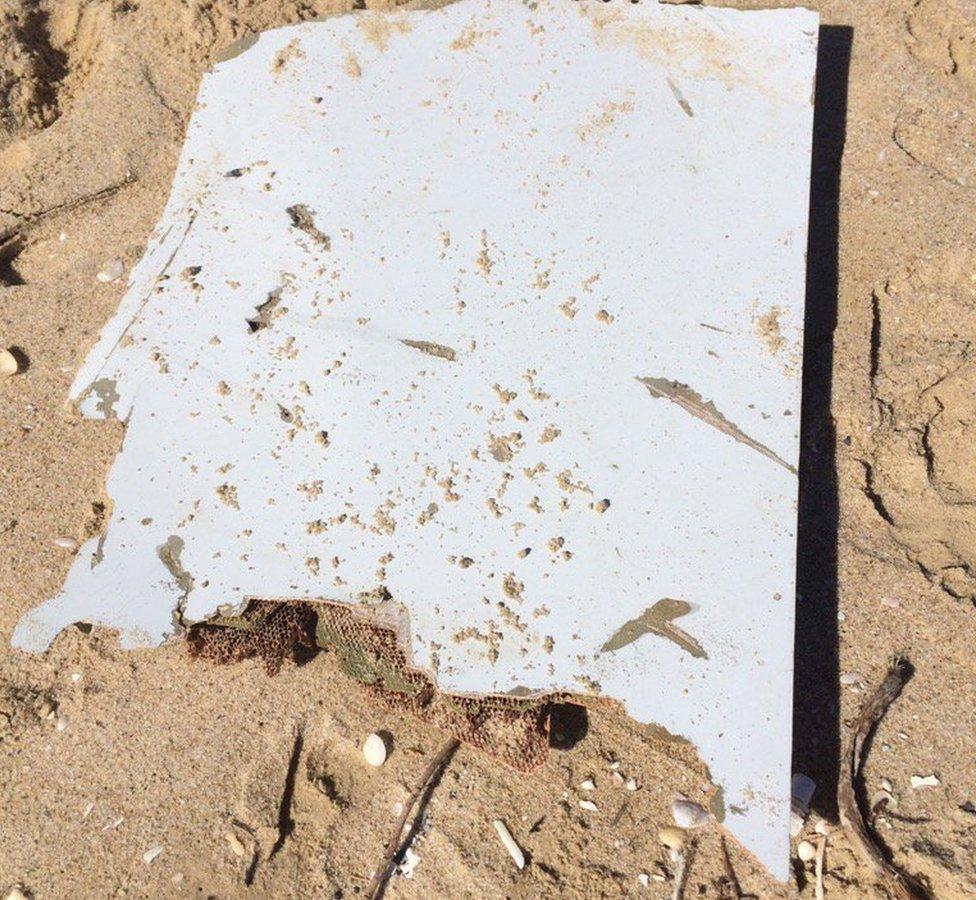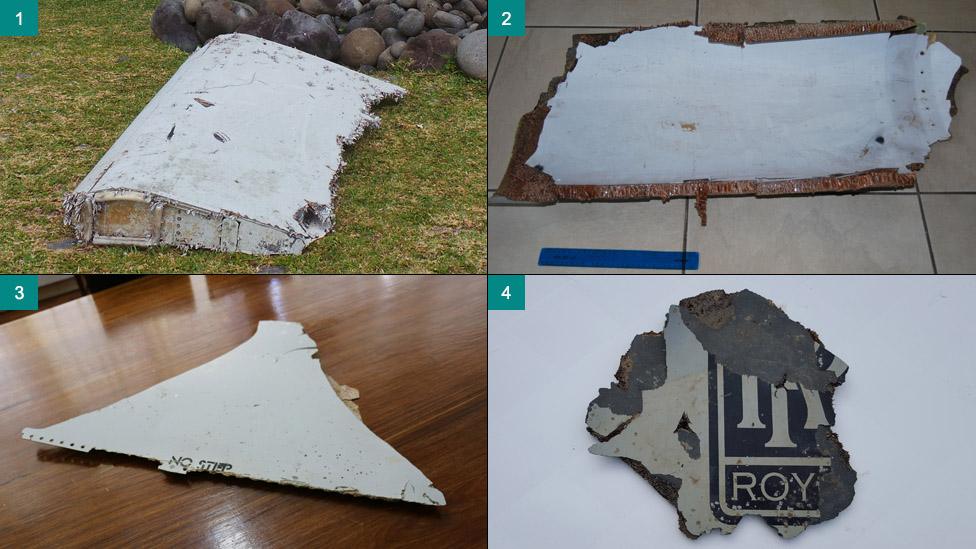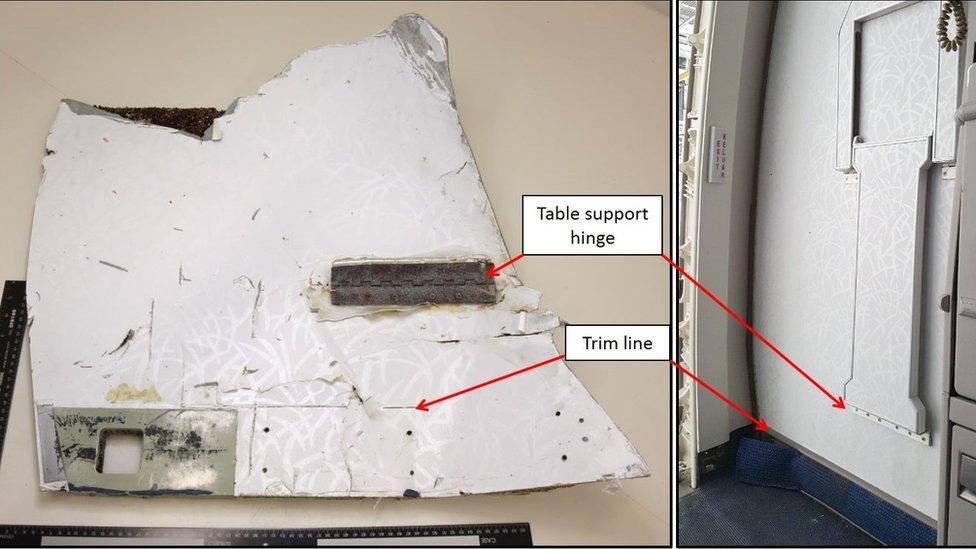MH370: BBC reader finds possible debris in Mozambique
- Published

Analysts said the piece looked like a tail or wing section from a Boeing 777
Experts following the disappearance of MH370 say it is likely that a new piece of debris found on a Mozambique beach came from the missing plane.
Luca Kuhn von Burgsdorff contacted the BBC on Thursday to say he found the fragment on the Macaneta peninsula.
The authorities have been notified. The piece must be examined by the official investigation team in Australia.
Experts say it is consistent with where previous pieces of debris from the missing plane have been found.
Mr von Burgsdorff took two photographs of the item on 22 May, and sent them to the BBC after reading a story on Thursday about other debris finds in the region.
He said the pieces were "reasonably light, did not have metal on the outside, and looked extremely similar to photos posted on the internet of other pieces of debris from aeroplanes".
MH370, flying from Kuala Lumpur to Beijing, had 239 people on board when it vanished in March 2014.
It is presumed to have crashed into the southern Indian Ocean after veering off course.

Right sort of place - Richard Westcott, BBC transport correspondent
On Thursday I met Blaine Gibson, who in February found what seems certain to be a piece of MH370 on a beach in Mozambique.
Then the same day, the BBC reader got in touch to say he may have found more.
Clearly, the piece needs to be confirmed by experts, but people who know their stuff tell me it looks like it might be.
It certainly has the honeycombing and rivet holes they'd expect. And it was found in the right sort of place, a beach in Mozambique.
This is going to keep happening. It seems inevitable there are many more parts on beaches, yet to be found.
Or maybe they've already been found, the people just don't realise what they are yet.

Don Thompson, a British engineer who is part of an informal international group investigating MH370, said the piece found by Mr von Burgsdorff "does look like it's part of Boeing 777", most like a leading or trailing edge closing panel from the wing or tail.
"It's in the right area where debris is expected to wash up," he told the BBC, saying it indicated the accuracy of drift models which show how debris might have moved from the crash site.
But he said such discoveries were "getting pretty routine", and more finds were likely to be made public.
"People are picking this up in the media and saying 'oh I saw something like that' and then going back and looking at their phones."

MH370-linked debris
Five fragments have so far been confirmed as being definitely or probably from MH370.

1. A section of wing called a flaperon, found on Reunion Island in July 2015 - confirmed as debris in September 2015
2. Horizontal stabilizer from tail section, found in Mozambique in December 2015
3. Stabilizer panel with "No Step" stencil, found in Mozambique in February 2016
4. Engine cowling bearing Rolls-Royce logo, found in March 2016 in Mossel Bay, South Africa

5. Fragment of interior door panel found in Rodrigues Island, Mauritius in March 2016.
6. On 27 May Australia's Transport Minister Darren Chester said two more fragments found recently in Mauritius and one in Mozambique were "of interest".

The Australian Transport Safety Bureau (ATSB), which is co-ordinating the ocean search, said the latest finder had since contacted them about the debris.
They said that having seen the photographs the piece was "certainly of interest" but it was now up to the Malaysian authorities to decide whether to organise retrieval and further analysis.
If they decide it is worthy of further investigation the piece will likely be taken to Australia for analysis.
On Thursday, Australia's Transport Minister Darren Chester said two fragments found recently in Mauritius and one in Mozambique were also "of interest".

Australian, Malaysian and Chinese ships have been searching 120,000 sq km (75,000 sq miles) of seabed using underwater drones and sonar equipment.
More than 105,000 sq km has been searched, but they say the mission will end by around August if there are no further significant finds.
Mr Thompson said it is widely expected that a Chinese search, at least, will continue beyond that point.
He said while there were still significant gaps in the data around the plane's disappearance, "we can be pretty sure the aircraft had a catastrophic impact" in the ocean.
"Everyone uses the word unprecedented with MH370," he said, "and it is".
